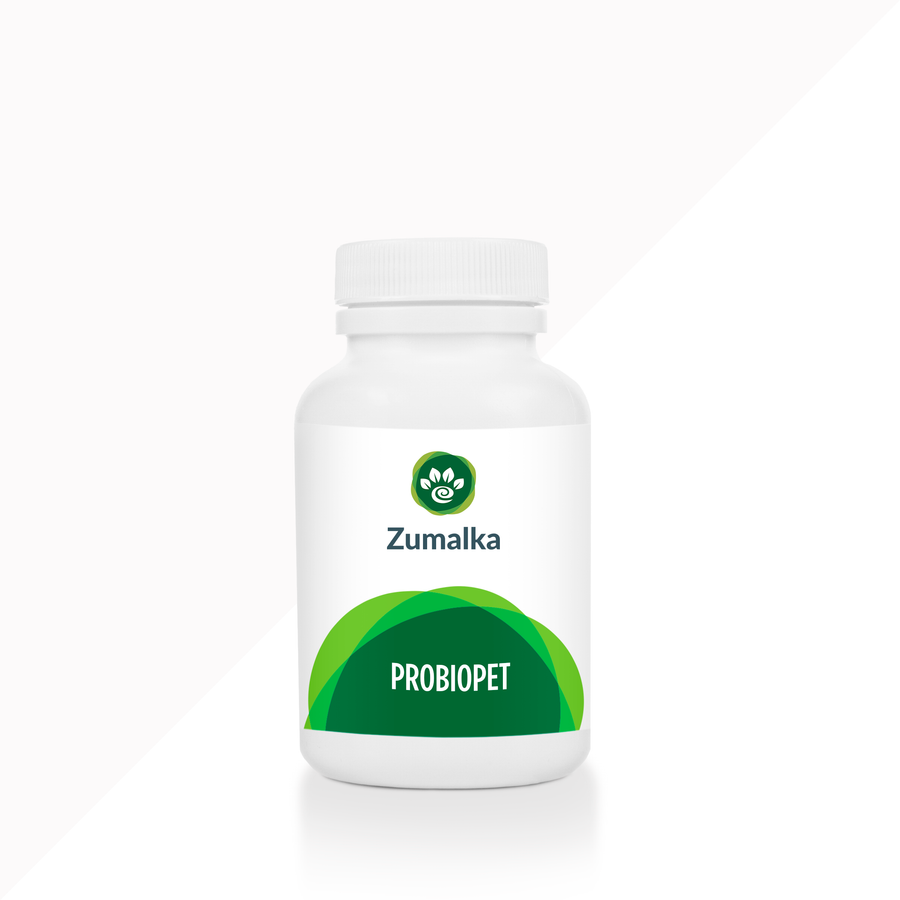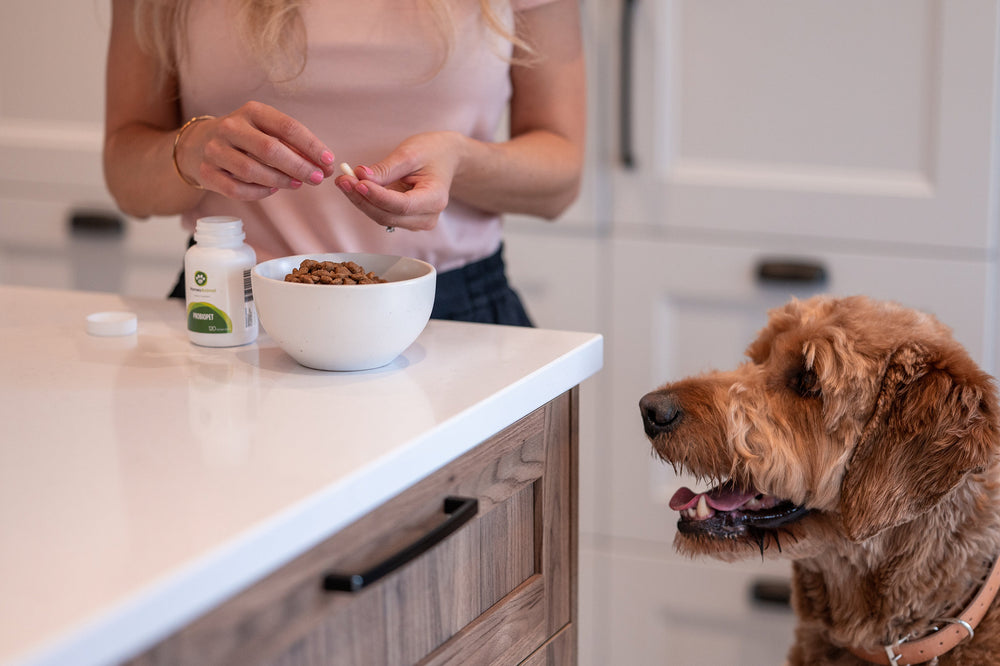9 Veterinarian-Approved Diet Tips for Senior Boston Terriers
Your Boston Terrier, affectionately known as the "American gentleman," brings joy, loyalty, and charm to your home. But as they enter their senior years, their diet needs to change to support healthy aging and overall well-being.
As Boston Terriers enter their senior years, their changing nutritional needs demand a more targeted diet to support health, comfort, and longevity. This guide shares 9 expert-backed tips to help you choose the best food for your aging Boston Terrier.
#1. Support Muscle Health with High-Quality Protein in Your Senior Dog’s Diet

Senior dogs, such as Boston Terriers, require more protein, not less, to prevent age-related muscle loss. Choose foods with high-quality, animal-based proteins, such as chicken, turkey, fish, or beef, listed as the primary ingredient. A protein-rich diet supports strength, mobility, and overall vitality in aging dogs.
Experts recommend 28% to 32% protein on a dry-matter basis for healthy senior dogs. To ensure quality nutrition, avoid foods that list “meals” or “by-products” as the primary protein source.
#2. Promote Mobility and Comfort by Supporting Joint Health
Boston Terriers are predisposed to joint issues like patellar luxation, which can lead to arthritis in their senior years. Supporting joint health through diet is essential for maintaining mobility and comfort. Look for senior dog foods with glucosamine and chondroitin to help protect aging joints.
Omega-3 fatty acids play a key role in managing inflammation, supporting joint health, and promoting a healthy skin and coat. For added support, consider supplements containing ingredients like turmeric and green-lipped mussel. These natural compounds may help improve joint comfort, flexibility, and overall mobility in senior Boston Terriers. Moreover, Zumalka's SILI-MER G5 is an excellent "food additive" to help with joint, skin, fur, inflammation, kidneys, and so much more.
#3. Soothe Sensitive Stomachs and Prevent Allergic Reactions
Boston Terriers commonly experience sensitive stomachs and food allergies, with triggers like corn, soy, and gluten causing digestive or skin issues. Symptoms may include gas, bloating, vomiting, diarrhea, or itching. Choosing a limited-ingredient or hypoallergenic diet can help manage these sensitivities and improve overall well-being.
If your Boston Terrier shows signs of food sensitivity, consider switching to a limited-ingredient diet to reduce potential triggers. Look for formulas that include prebiotic fiber and high-quality probiotics to support healthy digestion. These ingredients can help balance gut bacteria, ease discomfort, and promote long-term digestive health.
#4. Manage Your Dog’s Weight to Prevent Obesity

Obesity is a common concern in senior Boston Terriers and can worsen breathing difficulties and joint strain. Managing their weight is essential to supporting long-term health and mobility. Instead of free-feeding, provide measured portions based on your dog’s age, size, and activity level.
A less active senior Boston Terrier weighing around 10 pounds typically needs about 300 calories per day. Choose senior-specific formulas that are lower in fat but rich in essential nutrients. This helps manage weight while still supporting overall health and vitality.
#5. Keep Senior Boston Terriers Hydrated
Senior dogs, especially small breeds like Boston Terriers, are often prone to urinary issues and may not drink enough water. Proper hydration is essential for kidney function, digestion, and overall health. Encouraging water intake helps prevent dehydration and supports long-term wellness in aging dogs.
Wet dog food contains about 70% moisture, making it an excellent option for supporting hydration in senior Boston Terriers. It’s often lower in calories and easier to chew, especially for dogs with dental issues. Warming the food slightly can enhance its aroma and stimulate appetite in older dogs.
#6. Adapt Food Texture to Support Dental Health in Senior Boston Terriers
Aging dogs often develop dental issues that make chewing dry kibble difficult or painful. Senior Boston Terriers may benefit from wet food, smaller kibble, or softened dry food with added water.
You can also use plain chicken broth (if no chicken allergy) or unseasoned bone broth, free from spices, onion, garlic, leek, or chives. These adjustments improve dental comfort, make meals more enjoyable, and encourage consistent eating.
Senior dogs may experience a reduced appetite due to age-related changes in taste, smell, or dental discomfort. Warming their food or adjusting the texture can make meals more enticing and easier to eat. These simple changes can help maintain healthy eating habits and proper nutrition.
#7. Talk to Your Veterinarian or Pet Nutritionist About Your Senior Boston Terrier’s Diet

Senior dogs have individual nutritional needs, and Boston Terriers may face breed-specific issues like eye conditions, hearing loss, or breathing difficulties. Consulting your veterinarian or pet nutritionist helps ensure your dog’s diet supports their unique health profile. A tailored plan can help prevent complications and promote long-term wellness.
Your veterinarian or pet nutritionist can pinpoint allergy triggers, recommend therapeutic diets for conditions like heart or kidney disease, and tailor feeding amounts to your dog’s age, weight, and health status.
This personalized approach helps meet your senior Boston Terrier’s specific nutritional needs. Regular vet and pet homeopathic guidance is also key to maintaining long-term wellness.
#8. Ensure Nutritional Safety with AAFCO-Approved, Human-Grade Food
Select dog food that is AAFCO-approved for your dog’s life stage to ensure it meets essential nutritional standards. This is especially vital for senior Boston Terriers with age-specific dietary needs. Foods lacking AAFCO certification may not provide the complete, balanced nutrition needed for long-term health.
For top-tier nutrition, choose human-grade dog food made to the same safety and quality standards as food for people. These formulas use nutrient-dense ingredients without fillers, artificial flavors, colors, or unapproved preservatives. Feeding your senior Boston Terrier human-grade food supports better health, digestion, and overall well-being.
#9. Supplement Wisely and Transition Food Slowly for Senior Boston Terriers
While an AAFCO-approved diet covers basic nutritional needs, your veterinarian may suggest supplements for specific conditions like a luxating patella. Omega-3 fatty acids are especially beneficial for joint support and cognitive function in senior Boston Terriers. The right supplements can help manage age-related issues and improve overall quality of life.
Always transition your senior Boston Terrier to a new food gradually over 7 days to avoid digestive upset. A slow change allows their system to adjust and helps you monitor for any signs of allergies or behavioral changes. This careful approach supports both digestive health and long-term well-being.
The benefits of premium probiotics for senior Boston Terriers
Searching for effective probiotics for your pet? Zumalka’s high-quality formula is designed to support immune function and digestive health in both dogs and cats. Give your pet the daily boost they need for better gut balance and overall well-being.
PROBIOPET is a premium probiotic formulated to support optimal immune and digestive health in pets. This natural product delivers 12 billion live cultures per serving to support digestive health and microbiome balance in pets.
It helps stabilize gut function and can be especially useful for managing issues like constipation, diarrhea, bloating, and gas. Whether you're supporting healthy gut flora or protecting colon function, PROBIOPET is a must-have for your pet’s daily wellness routine.
FAQs
What is the healthiest food for a Boston Terrier?
The healthiest food for a Boston Terrier is a high-quality, AAFCO-approved diet with lean animal protein, healthy fats, and essential nutrients, tailored to their age, activity level, and health needs to support overall health, energy, and longevity.
What are the nutritional requirements for a senior dog?
A senior dog’s nutritional requirements include high-quality protein, balanced fats, fiber, vitamins, minerals, and joint-supporting nutrients, tailored to their age, weight, activity level, and health conditions to maintain muscle mass, mobility, digestion, and overall well-being.
How much should a Boston Terrier eat a day?
A Boston Terrier typically needs 1 to 1.5 cups of high-quality, AAFCO-approved food daily, split into two meals, with portions adjusted for age, weight, activity level, and health to maintain optimal body condition and energy.
What fruit is good for a Boston Terrier?
Safe fruits for Boston Terriers include blueberries, apples (without seeds), bananas, watermelon, and strawberries, which provide vitamins, antioxidants, and hydration. Offer in moderation as healthy treats alongside a balanced, AAFCO-approved diet for optimal health.
What is a healthy weight for a Boston Terrier?
A healthy weight for a Boston Terrier is generally 12–25 pounds, depending on age, sex, and build. Keeping them at an ideal weight supports mobility, breathing, and overall health in this active, affectionate breed.
What is the main cause of death in Boston Terriers?
The leading causes of death in Boston Terriers are heart failure and cancer, particularly mast cell tumors and melanoma. Regular veterinary checkups, consistent pet homeopathy consultations, early detection, and preventive care can help reduce risks and promote a longer, healthier life.
How much water should a Boston Terrier drink daily?
Boston Terriers generally need about one ounce of water per pound of body weight each day, with higher intake during heat or activity. Adequate hydration supports digestion, temperature control, joint health, and overall vitality.
What is the lifespan of a Boston Terrier dog?
The lifespan of a Boston Terrier averages 11 to 13 years, with some living longer through attentive care. A nutritious diet, consistent exercise, and routine veterinary visits are essential for supporting longevity, vitality, and overall well-being.








Leave a comment